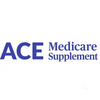Supplement Carriers










Medicare Supplement Plans
Also known as Medigap, these standardized health insurance plans ensure that your Medicare Supplement coverage remains consistent year to year. For instance, your Plan G will offer the same coverage for life, as will your Plan N. A Plan G from one supplement insurance carrier is identical to a Plan G from another carrier, whether it's carrier X, Y, or Z. The key differences lie in the company you choose to obtain it from and the rate you pay.
When it comes to choosing your doctors, there are no network restrictions. You have the freedom to visit any doctors office or hospital that accepts Traditional Medicare, with 98% of providers in the United States opting into medicare assignment.
-No Referrals
-No Prior Authorization
-No Network
No prior authorization is required to get needed medical services approved by an insurance company. This is especially beneficial for those with Medicare Supplement plans, as they provide coverage without the hassle of approval delays from an Insurance Carrier.
-Predictable
With Health Insurance Plans, you can avoid unexpected out-of-pocket medical expenses throughout the year. By paying the additional monthly premium, you gain peace of mind. You and your doctor make the decisions regarding your healthcare, while no insurance company can decide which services get approved or which doctors you can see. If Medicare approves the service, your Medicare Supplement insurance carrier is required to cover you.

What to look for in a Supplement Insurance Carrier
Rates
What is a Medicare Supplement premium? It’s the monthly rate you pay to the Supplement Insurance Carrier that provides your Medicare Supplement coverage. This premium is in addition to your Traditional Medicare Part B Premium. It's important to find out what premium each insurance carrier will charge you. Are they offering a low premium? Is it a competitive rate compared to other Health Insurance Plans available in your zip code?
Rate Increase History
Most companies will have an annual rate increase for their Health Insurance Plans to keep up with medical inflation. What have the rate increases of the Medicare Supplement carrier been over the last 3-7 years? Are the rate increases reasonable or significantly higher than those of competitor carriers offering Supplement Insurance?
Financial Rating/AM Best Rating
Several rating agencies assess the financial stability of insurance carriers, particularly focusing on Health Insurance Plans and Medicare Supplement options. These companies provide reports or grades regarding the fiscal health of these insurers. It's advisable to ask your agent about the A.M. Best and Weiss Ratings for each Supplement Insurance Carrier you are considering. Use this information to guide your selection process.
Additionally, you can get a personalized analysis of which Medicare Supplement insurance carrier offers the best pricing, financial rating, and rate history.
Loss Ratio
The loss ratios of national and state insurance companies are important indicators. What percentage of the premiums have they paid back out in claims? For health insurance plans, a healthier or lower carrier loss ratio typically leads to lower rates. This is also true for Medicare Supplement and other supplement insurance carriers.
Supplement Plan G and N
-Plan G is simple and part of our Health Insurance Plans. You're responsible for an annual $283 Part B Deductible—everything after that is 100% coverage for A and B Medical services approved by Medicare. We call this the SWAN plan, meaning you get to Sleep Well At Night.
-Plan N is similar but not quite as comprehensive. You're responsible for the annual $283 Part B Deductible, and after that, you will have $20 copays at doctors offices, $50 copays at the Emergency Room, and the potential for for Part B excess charges (15%). This plan is also offered by various Supplement Insurance Carriers.
-You will never see a hospital bill with either Medicare Supplement plan. Part A gaps covered 100%
This website uses cookies.
We use cookies to analyze website traffic and optimize your website experience. By accepting our use of cookies, your data will be aggregated with all other user data.
